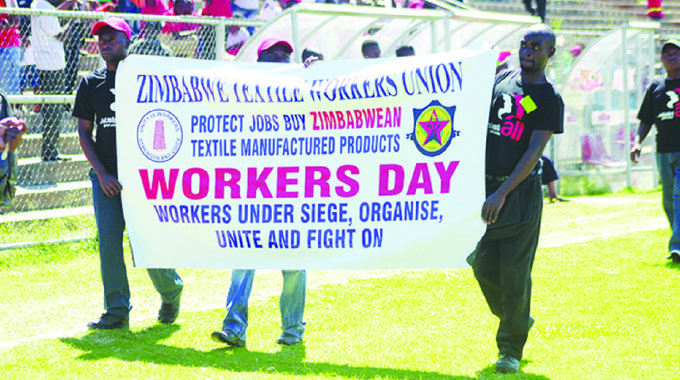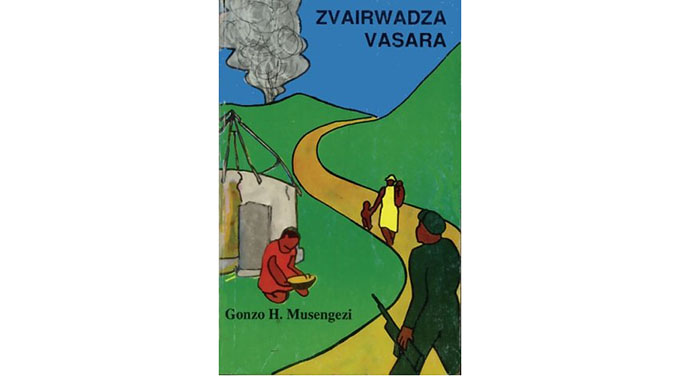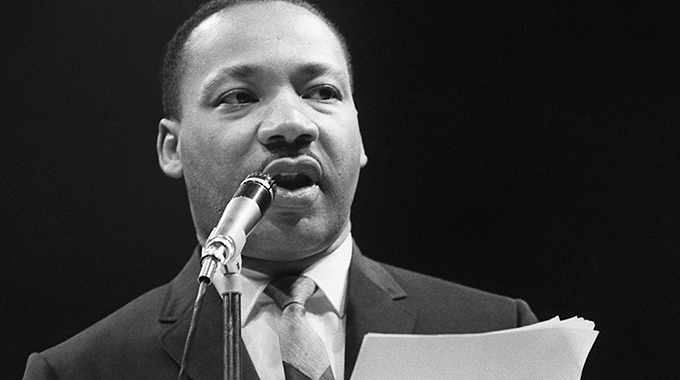Of violence, xenophobia and dry season flowers
Elliot Ziwira @The Book Store
There is nothing that beats hope, even in the face of raging storms; and there is no condition that is permanent. But all that we cherish only thrive in a peaceful environment, for violence begets violence in all its facets – physical, psychological, emotional and mental.
If a child who had been at the receiving end of molestation and oppression for a long time, stumbles on a gun to defend herself against a chauvinistic and masculine world, which had only paid lip service to her suffering and neglect in the past, would you point a cocked machine gun at her to coerce her to drop her uncocked pistol to prove that guns are dangerous?
Wouldn’t it be a travesty of justice if she so frightfully drops her gun and you go on to pick it up and add it to your collection, not only exposing her to the vagaries of the world, but making her aware that guns are not only dangerous, but powerful, no matter in whose hands they are?
Wouldn’t it be just for you to drop yours first and persuade her to do likewise?
These questions flood my mind as I think of the power politics of this miserable world, where justice wears so many faces that it is easy to miss it in the maze of masks that have become commonplace in these our trying times.
Could justice be a human being, a chameleonic one that hypocritically cries wolf when well-cushioned and secure in foreign capitals.
I guess we do not wish for Facebook, Twitter, Instagram and WhatsApp heroes, who beam the flames of the blasts in our midst, the explosions of our dreams through gold-rimmed lenses and project them on gargantuan screens on the anthills of our suffering, over glasses of whisky and in whiffs of rich cigar smoke.
We hear of nuclear weapons as being more dangerous when they are in the possession of supposedly smaller and insignificant states, and less toxic if they are in the hands of mighty states.
All weapons are dangerous, be they for single or mass destruction. Their main purpose is to destroy and nothing else. It is generally accepted that negotiations the world over would never come to fruition without the use of coercion, brutality or war.
All peace negotiations are an outcome of confrontation through wars – bloodied peace. But should it always be like that?
As a global village; as a nation wouldn’t we be mature enough to enlighten ourselves and our young people on the essence of peace, not by snatching explosives from them, but by impressing on them that nothing has ever been born of violence, except more violence; and that weapons are dangerous no matter in whose hands they are?
The idea of manufacturing weapons is as deplorable as the weapons themselves. The annual defence budgets of the six major powers – the G5 +1; Britain, United States of America, France, Russia and China, plus Germany run – into hundreds of billions in a world burdened with poverty, mostly at the instigation of the West, and yet they are not at war. What exactly would they be preparing for?
Truly, hope is the pilot of our dreams, without which all our aspirations are doomed. As certain as the sun shall rise tomorrow – indisputable as the fact that death flourishes in life – and that hurt is love’s bedfellow, hope should always be given a chance, although often times it may seem hopeless; so that our cherished flowers do not perish in the dry season of our toils.
Indeed, pain is the precursor to gain, moss a culmination of loss; and the rainbow, God’s promise not to bring another deluge of Noah’s days, comes after a storm.
Happiness is a condition or state of mind rather, whose existence cannot be hidden, but whose source is ensconced in our hearts; no matter how many heartbreaks life might have dropped our way.
There are seasons in life, different seasons really, but each of them comes as a result of the ebbing and passing of another; such is the circle of things. We plant our flowers in the rainy season, hoping that the dry season might not see us napping; without giving much heed to the tempests that come with the rains, scuttling our hopes, uprooting them and exposing them for all and sundry to have a field day at our expense; yet all our fears manifest in the dry season.
But can it be trite to say that it is the dry season that teaches us to store our grain, and to pick the best seeds in preparation for the vagaries that nature strews our way? A good flower is not determined by the way it blooms in spring, nor the way it luxuriates in summer, but by the way it withstands the dry season. If it is born of a weak seed, that cracks open in the wake of the scorching sun, then the farmer’s joy is only but ephemeral.
Fate gives no man no choice, as the deck of life deals cards randomly; making every hand a winner, and every hand equally a loser. It is up to all of us to turn the odds to our favour by playing well those cards dealt to us and paying close attention to how others play theirs.
Downpours may always seem to be meant for us in equal measure to the shimmering sun on our sprouting flowers, but it is in such situations that our mettle is tested. And to start with gentle reader, engross yourself in poetry and locate yourself in the miasmic orbit that takes your dreams to heights untold. It may be worth your while.
As blasts erupt in mind, and I think of two fellow countrymen, who lost their lives, and the other 47, who were injured in that moment of madness at White City Stadium in Bulawayo on June 23, 2018; and xenophobic chants echo in my soul, I find solace in poetry.
Evocative, thought-provoking, astounding, therapeutic, deeply engaging, hair-raising, addictive, transcendental and challenging, is what good poetry should do, and it is that and more, which the anthology “Flowers of a Dry Season” (2015) published by Forteworx Press, edited by Beaven Tapureta and Brian Tafadzwa Penny (T. P. Brian), does.
The anthology, a product of the convergence of 14 hilarious, toddling, yearning, scathing, exhorting, soothing and infectious voices, on the poetic landscape of hope, as the African dream, or pertinently the Zimbabwean reverie, is under threat from a blazing internal and external inferno.
The contributors to this moving collection are Monica Munashe Rupazo, Tinashe Chimuriwo, Owen Kambanje, Audrey Lindani Mutinhiri, Leonard Mutsa Makuya, Gloria Murindi Dangah, Brian Tafadzwa Penny, Jubilant Ncube, Tendai Noreen Sadziwa, Edmond Shonhiwa, Taurai Vincent Sekenya, C.J. Mylton, Patrick Mahlasera and Yeukai Mapingure.
Oozing the ebullience of youth and seemingly inexperienced, yet well-schooled in the voyeuristic nature of Man, the poets articulate their own experiences in a world that places so much emphasis on material acquisitions as a milestone to glory, giving scanty considerations to familial, communal and national ethos that shape the individual.
Caught up in the race, the individual struggles to locate himself or herself in the national discourse as a result of suffering, toil, deceit and avarice.
Although, they may be clad in different claes as they hone their individual voices, that hoist them to their own separate crescendos, the poets’ clairvoyance leads them to a cirque, which resonates with shared hope.
Because they are still seeking their individual tunes, discord cannot be avoided here and there, but the sweet melodies of their unique voices remain top drawer, as they blend their strengths to give a rhapsody that remains lingering in one’s ears even after the music has long since stopped playing.
The discarding of contrived poetic forms, use of conventional symbolic elements, varying of styles and purveyance of a plethora of thematic concerns that cut across social boundaries, ensure the capturing of a universal tale whose movement carries experiences lived and shared, to a sentimentally realistic conclusion.
The paralysis, malaise and claustrophobia that weigh down on familial, communal and national discourses leading to despondency, frustration and dispiritedness is told in such a way that the reader cannot help locating himself or herself in the different sites that the poets open up.
The yearning voices, implore Man to own up to his foibles, so as to redeem society from the jaws of the monster that creeps from its belly- an orgy of its own creation.
Society has become a deathbed; and a furnace where dreams are barbecued, and the nostalgia of a gleeful yesterday attempt to throttle today’s aspirations, as in T.P. Brian’s “If Today Were Yesterday”.
In “The Inferno Echoes”, Shonhiwa takes a swipe at the xenophobic tendencies of South Africa (Azania), whose warped thinking leads to the imaginary existence of foes among fellow brothers, forgetting that Africans were “nurtured together … brawled against imperialistic regimes” as one family.
The persona implodes: “I saw my children burn in flames of your anger/ I saw other neighbours burning too.” The persona remonstrates the wayward sibling: “This Africa is our mamaland/But you cast my children into the inferno/Where they diminish into ashes/Why, brother Azania, why?”
“Flowers of a Dry Season” (2015) is, indeed, a powerful collection of individual episodes that interact and merge into the national psyche to relay a fairytale of hope and a shared vision.








Comments